By Richard Clark
Years ago, I realized addicts and people in twelve-step and recovery groups are often puzzled about dishonesty (I know I was about my own). Honesty and dishonesty are flip sides of the same thing and exist on a sliding scale. Honesty is arguably the most significant factor in active addiction, recovery, the steps, being recovered, Buddhism, and relationships. Even though frequently ignored, Bill Wilson advised us about the importance of rigorous honesty in How It Works (Alcoholics Anonymous, p. 58). However, honesty cannot be understood because people are generally confused between two opposing opinions. (a) From traditional religious AA, dishonesty is a character defect (the majority opinion). Or (b) dishonesty in addicts is a symptom of illness (the minority opinion).
1st Side Note: A person feels ill. Their symptoms are coughing with phlegm, shortness of breath, increasing chest pain, fever, nausea and occasional vomiting. Their doctor diagnoses pneumonia and recommends antibiotics, tea, bed rest, chicken soup (whatever). The person recovers. Here’s the point: At no time did the doctor tell them to stop with the fever. No one demanded they quit with the night sweats and fever. We all agree fever is accepted as an unavoidable symptom—fever and pneumonia are a ‘package deal.’
2nd Side Note: Addiction exists separate from all other counselling endeavours. In relation to addiction there are five visible social symptoms that professionals rely on to evaluate the illness.
- Self-harm and harm to others; being deliberately negligent.
- Dishonest and evasive; manipulating/withholding.
- Being arrogant that conceals insecurity.
- Being callous and insensitive.
- Appearing belligerent and defiant.
All addicts, regardless of the addiction, have these five symptom constellations; they are not different categories of bad character. To affect stable recovery, it is essential to shift perceptions from ‘bad character’ to illness. This means that dishonesty, along with the other four symptoms, are not ‘defects.’
3rd Side Note: I have been asked why I frequently refer to Buddhism when discussing addiction. What I have believed (for forty years) is Siddhartha’s psychology of emotional transformation going from dukkha to nirvana (not the religious views that became popular after his death) is very similar to the journey from active addiction to compassionate recovery (atheist/agnostic recovery, not the religious views). In Siddhartha Gautama’s teaching, c. 500 BCE, honesty wasn’t a declared part of his four truths. It was a naturally understood requirement: when achieving nirvana honesty (and responsibility) are axiomatic necessities, so essential and obvious they didn’t warrant mention. [In another writing I explain that experiencing nirvana is a matter of psychology. Religious interference in Buddhist discipline is what causes this chaos.]
Consider that “There are few things about which people are less honest than their attitude toward honesty. Everybody claims to favor it and to consider it important, and an open accusation of dishonesty is a heinous, actionable insult. Yet our public life is permeated by a staggering tolerance for quite deliberate dishonesty. …At most, sophisticated people joke about [dishonesty].” Walter Kaufmann, from The Faith of a Heretic, 1961.
In our era, no one entering a therapeutic relationship needs to be told that they should be honest—it’s an expected requirement. It would be rather insulting to admonish a person to be honest in counselling or at meetings, and yet people are dishonest but know not why.
In 1939, personal therapy and Buddhism didn’t exist in social consciousness. And Bill Wilson’s passion on behalf of alcoholics was limited by his self-deprecating religious views of character and alcohol consumption. Yet he knew being honest was one crucial issue necessary to facilitate recovery. In Alcoholics Anonymous, he suggested that dishonesty (symptom #2) was an unavoidable trait of the alcoholic. He shoved ‘dishonesty’ into the general category of character defects, but dishonesty is not a defect for addicts. It’s a required symptom of the illness. Pneumonia requires fever (it’s a symptom) and getting rid of the fever doesn’t get rid of pneumonia. Addiction requires dishonesty, it’s a symptom not a defect, and demanding that an addict stop lying ‘right now’ is the same as ordering someone with pneumonia to stop having a fever.
In the first few paragraphs of ‘How It Works’ Mr. Wilson speaks directly to thoroughly following the path, willing commitment, being fearless and thorough, and insisting on rigorous honesty. He wrongly classified dishonesty as a character defect but realized, without knowing why, alcoholics have no choice in the matter of dishonesty while in addiction. They are inveterate liars and being deceitful is not optional; hence the conclusion that honesty is never accidental, it’s a necessary mental symptom.
What may be more important is his sequence of presentation: first he suggests that steadfast commitment to rigorous honesty is crucial, and then Mr. Wilson presents his view of God and the steps. Rigorous honesty first (of overriding importance) and then next came second God and the Steps.
Addicts lie in their thoughts, in their words, often lie when making commitments, lie to themselves, and conceal and deceive; they cannot do otherwise. ‘Yes, it was all my fault,’ (but silently thinking only 97%). Being 97% honest is lying. Like pneumonia and fever, being dishonest is in the fabric of the illness. To improve recovery, to achieve the promises, to stay far away from relapse requires rigorous honesty in both fact and in detail.
Many people in the recovery/treatment community oftentimes assume honesty will just magically happen. They’ve been abstinent and sober, so honesty just happens like magnetism: being sober attracts honesty. Or they are honest because they hang around with other people who claim they are honest. Honesty rubs off on you, doesn’t it? Or, honesty is like getting old, it just happens. These are all evasions of responsibility. People have been clean and sober for so long that others just assume they are honest.
Addicts will drink eight bottles of beer and tell you they drank ten. They will be dishonest about what they had for breakfast. Their spouse wasn’t unpleasant they were notoriously nasty. Forty-four years of attending meetings and 40 years as a therapist leaves me with no doubt that, while believing they are not deliberately lying, addicts rationalize, minimize, and exaggerate, sliding around rigorous honesty. This is a set up for tenuous recovery and relapse. Why?
It is common knowledge that addicts are overburdened with shame and guilt. Much of that is imposed upon them by an unforgiving society that has miniscule compassion for addicts. And the above quote from Mr. Kaufmann shows that society avoids truth-telling and makes light of dishonesty.
Addicts live with unresolved shame and guilt and being sober (even for a long time) does not automatically dissolve shame and guilt; for most people it hides it. The psychology of addiction requires addicts hide and deceive; their guilt and shame are emotional realities that demand concealment and dishonesty. An unsympathetic society does not make truth-telling easy for addicts who lie as a symptom of their illness. That’s the psychological double-whammy: Society insists we be honest, but tolerates dishonesty on the grand scale, and with their prejudice against addicts (especially drug addicts) when we are honest, oftentimes we’re not believed, or they think we are manipulating. This hopeless cycle leads to relapse.
Set Up One: my drinking/acting out/porn/drug addiction was very shameful—>I must conceal most of it—>I tell lies—>now I conceal the shame of my addiction and also have to conceal the shame that I am lying—>No one can find out I am lying and concealing so I withdraw from support—>I relapse.
Set up Two: my addiction was very ordinary and uneventful compared to those really bad war stories I hear—>I don’t feel entitled to be here—maybe I am not an addict—>I can’t admit I’m ordinary so maybe I’ll exaggerate a little and brag to get some attention—>(or) I’ll hide my ordinary story and pretend I’m not hiding—>I am lying—>No one can find out I am lying and concealing so I withdraw from support—>I relapse.
Honesty is never accidental, and addicts can’t ‘just quit’ lying because someone tells them to. Being honest must become a conscious, determined, self-directed, and specific mental exercise. Rigorous honesty cannot be haphazard, it’s a conscious and deliberately self-imposed discipline. It is of great merit that Mr. Wilson identified honesty as the initial, primary requirement of recovery—it’s first, ahead of God and the steps. It’s priority status and importance are commonly ignored, especially by religious pundits.
What’s the consequence of not believing this? In my first dozen years of working with others, I was always curious about relapse; the why’s and wherefores; the set ups. Being a therapist and talking about addiction many hours each week, I always believed that relapse was never spontaneous or sudden, it was a planned event. In the late 1990s I was offering a series of seminars to a group of counsellors. They led me to the understanding that what was common to all relapse is the presence of dishonesty before the event.
Anyone who relapses, especially after a few months or years of sobriety, has been dishonest. This includes counsellors who may be ‘dishonest’ in the manner of their work. People rationalize why they have been dishonest but are blind to dishonesty prior to all relapses. However, to an addict (and for some professionals) rigorous honesty is often dangerous. There may be legal, relationship, or employment repercussions, lost jobs, damaged friendships, divorces, or the creation of enemies. Not everyone admires a rigorously honest person. What keeps some people lying is their belief they cannot survive the consequences of honesty.
This creates a life-or-death conundrum in recovery: If an addict is rigorously honest, they might grievously damage their life circumstances, but if they are not rigorously honest, they will relapse. Even when an addict or counsellor is made aware of these opposing possibilities (which are very real and not to be trivialized) they will often only minimize or mitigate their lying to a ‘tolerable’ level. This foments disaster. Being honest is an exhausting exercise of continuing improvement. It is the never-ending development of moral courage.
Next week I will outline my experience of the changing demands of rigorous honesty during step work. That is why there is such an overwhelming amount of 1-2-3-4-5 sharing and so little insightful discussion of Steps 6 to 12.
Thank you for taking the time to read this,
Richard Clark
 Richard Clark has been clean and sober since September 1980 and has always been open about his atheism. He became involved in AA because of the compassion of an old-timer who was a devout Christian. Richard is now sober 44 years with no relapses, active in his weekly agnostic meeting, and never concealed his atheism. Professionally, Richard has been a therapist in addictions work since 1985. For several decades he’s been committed to the ancient Buddhist stream of Arhat consciousness and been recognized as a Pratyeka-buddha, pre-Theravada practise (and still working at it). He offers private counselling sessions with clients from across Canada. He has written three books and is presently writing a fourth book for addiction counsellors… and plans a fifth book on the psychology of recovery in Buddhism (atheist version). There is more information about him at Green Room Lectures.
Richard Clark has been clean and sober since September 1980 and has always been open about his atheism. He became involved in AA because of the compassion of an old-timer who was a devout Christian. Richard is now sober 44 years with no relapses, active in his weekly agnostic meeting, and never concealed his atheism. Professionally, Richard has been a therapist in addictions work since 1985. For several decades he’s been committed to the ancient Buddhist stream of Arhat consciousness and been recognized as a Pratyeka-buddha, pre-Theravada practise (and still working at it). He offers private counselling sessions with clients from across Canada. He has written three books and is presently writing a fourth book for addiction counsellors… and plans a fifth book on the psychology of recovery in Buddhism (atheist version). There is more information about him at Green Room Lectures.
For a PDF of this article, click here: Rigorous Honesty and Addiction Recovery (Part One).
The post Rigorous Honesty and Addiction Recovery (Part One – Dishonesty and Addiction) first appeared on AA Agnostica.
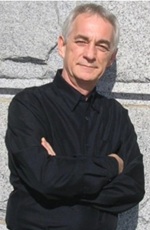


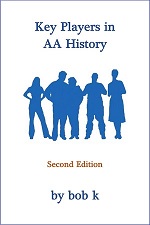 Bob k has been a sober and active member of Alcoholics Anonymous since October 28, 1991. He is the son of an alcoholic who was the son of an alcoholic. Bob qualifies for Al Alon and Adult Children of Alcoholics and has been to meetings of those two societies. He has also visited Narcotics Anonymous, Cocaine Anonymous, and Food Addicts in Recovery.
Bob k has been a sober and active member of Alcoholics Anonymous since October 28, 1991. He is the son of an alcoholic who was the son of an alcoholic. Bob qualifies for Al Alon and Adult Children of Alcoholics and has been to meetings of those two societies. He has also visited Narcotics Anonymous, Cocaine Anonymous, and Food Addicts in Recovery.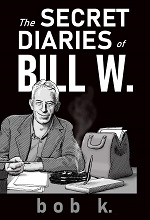 He has been a regular contributor to the websites
He has been a regular contributor to the websites  I thought: “These heathens will love my Lord’s Prayer rant” and I posted it as a comment on one of the Agnostica articles. I have to say that, over the years, there have been a few people who regularly wrote 2,000 word comments on 1,500 word Agnostica essays. That’s pretty dumb—when someone ELSE does it. I became a frequent contributor to the website and my submissions on AA’s origins led to the publication of Key Players in AA History in 2015.
I thought: “These heathens will love my Lord’s Prayer rant” and I posted it as a comment on one of the Agnostica articles. I have to say that, over the years, there have been a few people who regularly wrote 2,000 word comments on 1,500 word Agnostica essays. That’s pretty dumb—when someone ELSE does it. I became a frequent contributor to the website and my submissions on AA’s origins led to the publication of Key Players in AA History in 2015.
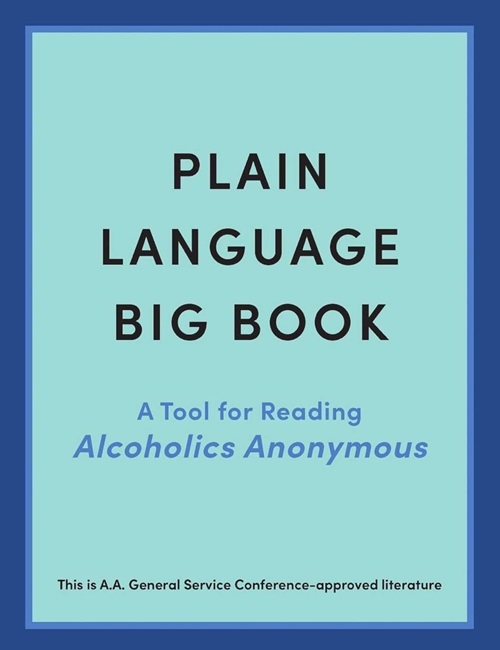



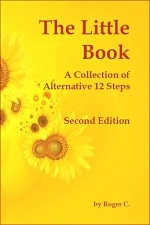
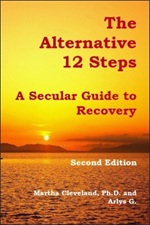 Over the years, this has been a very popular book.
Over the years, this has been a very popular book.